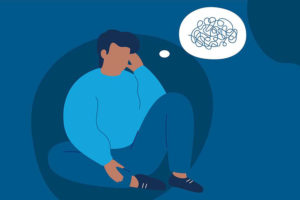Have you experienced a migraine attack during a stressful time? What about after a stressful event or period?
If you’ve ever wondered, “Can stress cause migraine attacks?” you may be onto something.
To be clear, migraine is a chronic illness. There is a genetic predisposition to have migraine, meaning it runs in families. There is nothing you’ve done that has “caused” you to live with migraine.
Someone with migraine has migraine attacks. A migraine attack is made up of multiple phases and many symptoms that can vary from person to person and attack to attack. Learn more about migraine attacks and migraine stages.
There’s no single factor that “causes” migraine attacks (experts say it’s usually a combination of factors that leads to a headache). But stress, undoubtedly, is one of the factors that many people with migraine say is a trigger for them.
The exact link between stress and migraine, however, may not be as clear cut as you think. Scientists have determined, in fact, that it is changes in stress levels that are so dangerous, both going from lower stress to high stress, and also higher stress to low stress (which we know sounds crazy!).
Here’s the low down on what we know about whether a migraine attack can be brought on by stress, and what you can do to avoid those post-stress migraine attacks.
What is stress?
We’ve all been through it, and know how horrible it feels 一 but what, exactly, is stress?
Stress is the physical and emotional reaction that we feel when we’ve experienced something frightening or threatening, or that otherwise feels too hard to cope with.
Imagine a cat sitting on a thin tree branch. The branch may creak and sway a little, but stay intact. But then, when a few more cats climb up onto the branch, the weight may be too much 一 causing the branch to snap.
That’s kind of like what stress is like. It’s what happens when you’re dealing with so much that your body and mind simply can’t take it anymore. Eventually, things snap. And when your circumstances are bigger than your ability to cope with them, your nervous system activates the stress response.
How does stress affect the body?
During the stress response, several changes happen in your body, including:
- Your heart pounds harder and faster.
- This makes your blood pressure rise.
- More blood gets to your muscles.
- You start breathing more quickly.
- Extra oxygen goes to the brain.
- Airways in your lungs get wider.
- Your senses become sharper.
- Blood sugar (glucose) gets released.
This happens because when your brain detects a threat, it releases certain hormones, including adrenaline and epinephrine. These stress hormones help get your body ready to defend itself, run away, or attack.
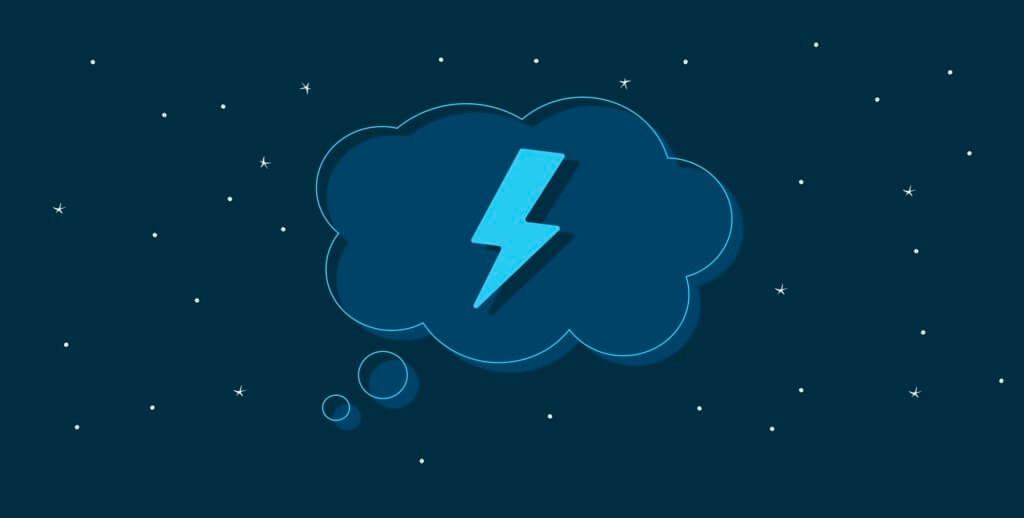
Stress isn’t always bad
Even though we often talk about stress as a bad thing that needs to be avoided, the scientific truth is that it isn’t always bad.
Stress can be a good thing 一 human beings developed this response for a reason. Being under a lot of stress can give you a short burst of energy and strength to deal with whatever you’re dealing with 一 from bears and tigers to tight deadlines.
Stress or activation comes along with the challenge and excitement that we feel when we’re playing competitive sports, performing, or public speaking – even when we’re excited about a date. Activation can make us feel alive. But when it’s too much, for too long, and associated with negative things, it can be hard on the brain, the body, and the spirit.
Consequences of chronic stress
The problem is being under chronic stress 一 the type of stress that many humans experience.
Chronic stress never allows your central nervous system to regulate itself, rest, or repair. When you live under chronic stress, it’s as if you’re on high alert, ready to fight danger, even when there isn’t a threat. And the human body isn’t designed to have its stress response activated all the time.
Chronic stress can have harmful and long-term health consequences, including:
- High blood pressure
- Heart problems
- A weakened immune system
- Mental health problems including depression, anxiety, and substance use
- Migraine
The good news is that chronic stress is manageable. You can teach your nervous system to calm down, and train it to release the antidote to stress – the relaxation response.
We will teach you several strategies for activating the relaxation response in the Juva program.
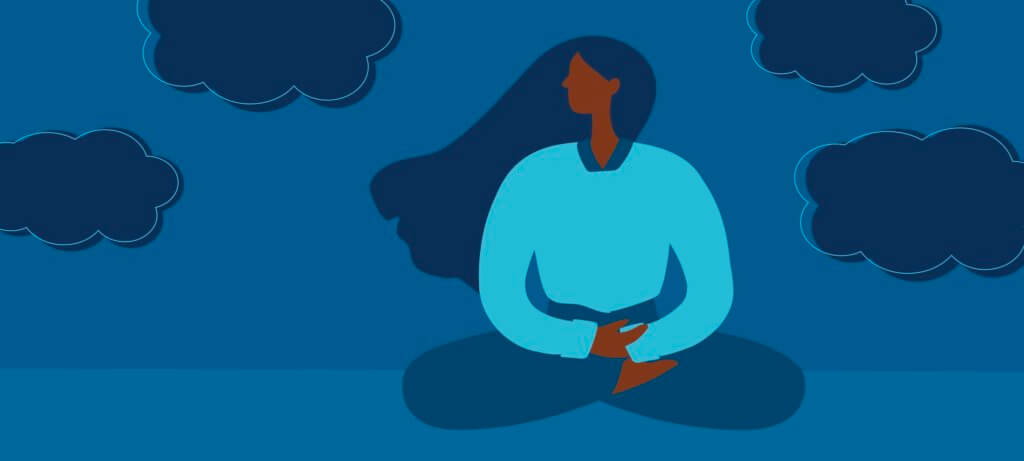
Can stress cause migraine attacks?
Migraine attacks may be caused by a combination of reasons or for no apparent reason at all. We really want to stress that we are by no means wanting to blame you or anything that you do for experiencing migraine attacks.
However, we do want to help you identify things that you can do that may help reduce attack frequency. Stress and migraine have a complicated relationship. Once you get stuck in the vicious cycle of stress and migraine attacks, it can become difficult to get out of it. That’s why it’s critical to manage your everyday stress levels, as well as the highs and lows.
Now, we know that you can’t always control the difficult and negative things that happen in life. But like the mindfulness researcher Jon Kabat-Zinn said, “You can’t stop the waves, but you can learn how to surf.” In the Juva program, we want to help you build that surfboard.
Studies show that an overwhelming majority – up to 80% – of people with migraine say that stress is one of their top triggers for attacks.
This may be because people with migraine have a highly sensitive central nervous system. If you live with migraine, your central nervous system is more reactive to even small changes in things like sleep, caffeine, and – yes – stress levels.
Why do I get a migraine when I relax?
Unfortunately, a heightened sensitivity to changes means that a sudden decrease in your stress levels can also trigger a migraine headache.
Some people with migraine notice that they experience migraine attacks when their stress lets up. For example, they might be stressed with work or school, and look forward to the stress-free days of the weekend 一 only to get hit with a migraine attack right as the workweek is ending. This is called a “let-down headache.”
Because brains with migraine are sensitive to change, the best thing you can do to prevent a stress-change induced migraine attack is to keep everything in your life as stable as possible. Consistency is key in migraine management.
“Work hard, play hard” is the worst possible life motto for someone with migraine. This type of lifestyle can cause fluctuations in your stress and activation levels, and leave you vulnerable to a stress-induced migraine attack at any point in the cycle 一 both when you’re “working” and when you’re “playing.”
Obviously, this doesn’t mean that if you’re stressed, you should strive to stay stressed so that you don’t cause any big changes. The goal is to keep your stress at a healthy level as much as possible during your everyday life so that you’re rarely having to deal with these big variations.
For example, let’s consider the stress that someone may have during finals week at college. It’s understandable that this will be stressful. One strategy is to try to engage in mini-relaxation experiences each day during the week. Some examples might be a 10-minute walk up and down the staircase in the dorm, watching a 5-minute video that makes you laugh out loud, or a short biofeedback exercise. By engaging in activities that work against the stress response, you can try to keep bringing your activation down so it doesn’t build up sky high.
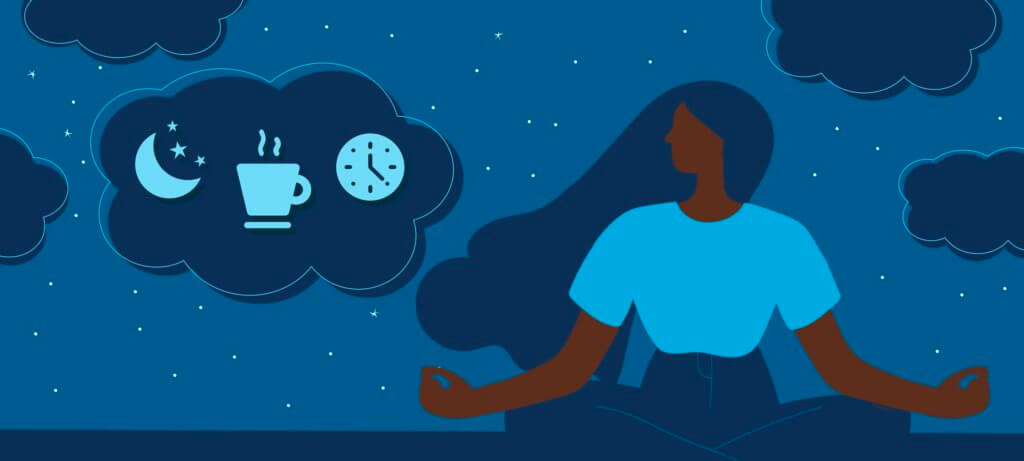
The vicious cycle of stress and migraine
One of the most difficult things about the relationship between stress and migraine is that it can become a vicious cycle. In other words, stress can trigger migraine attacks 一 but life with migraine can also cause a lot of stress.
On top of the physical pain and discomfort that migraine can cause, this condition also often leads to other stressful disruptions in your life.
For example, you might have to call out sick from work more often than someone who doesn’t have migraine. Because of this, you might become backed up with tasks or worry about how you’re perceived at work, which may increase stress.
Migraine can also disrupt your relationships. Maybe you need to cancel social occasions more often than other people, or maybe migraine pain, nausea, and other symptoms make you feel irritable with those around you.
These are just a few examples of how living with migraine leads to more stress.
The problem, of course, may be that the more stressed you feel (because of migraine or other reasons), the more frequent your attacks. And the worse your migraine is, the more stressed you feel 一 and so on, until you’re locked in an ever-ending cycle. (Although, as a reminder, it’s not usually that clear cut and there are often many factors at play.)
This is why it’s so important for people with migraine to regularly practice ways to manage their stress 一 to avoid stuck in this trap. It isn’t your fault that you have migraine, but only you have the power to make changes and manage the stress you experience to the best of your ability – whatever your best may look like.

Stress and other important lifestyle factors
On top of the relationship between stress and migraine, stress can also have other indirect effects. Stress has a lot of negative consequences, and can lead to a wide array of health problems and problematic behaviors. Some of these issues are also related to migraine.
For example:
- Sleep. It’s well-established that stress worsens sleep problems, like insomnia. Sleep hygiene is important in migraine management. Changing sleep schedules or not getting enough sleep – or even getting more than usual – can be a trigger for attacks for some people. Separately, there are several sleep disorders that commonly appear with migraine, like insomnia, sleep apnea, and restless leg syndrome.
- Substance use. People with high amounts of stress are more likely to misuse, overuse, and abuse drugs and alcohol.
- Caffeine. If stress is keeping you up at night, you may be more likely to consume large amounts of caffeine throughout the day to stay awake. Changes in caffeine from one day to the next can be a migraine trigger as well. Generally, it is important to lower your caffeine intake, but try not to make the changes too fast.
In simple terms, changes in stress relate to changes in your brain and body that may directly make you more vulnerable to a migraine attack. But stress also affects the rest of your life, and may make it more likely that you’re engaging in other unhealthy behaviors – and that could also be making your migraine pain worse.
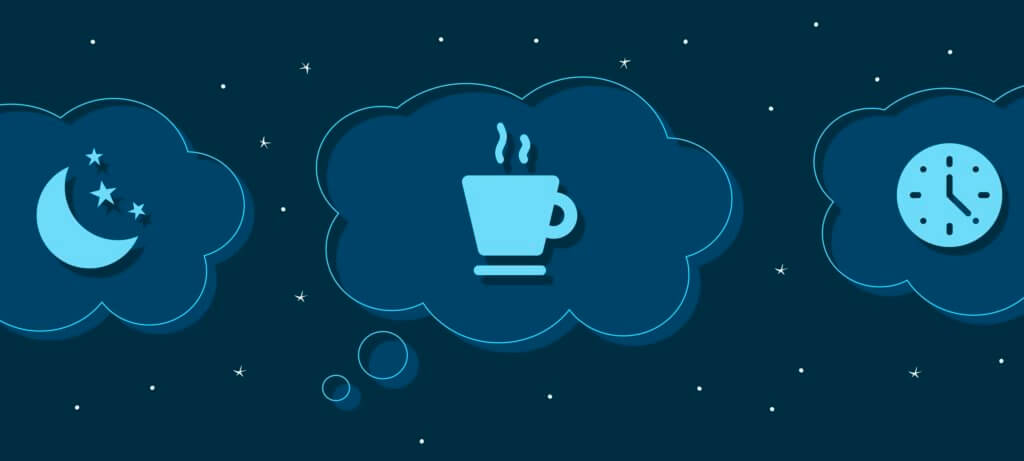
Migraine stress management
Many people with migraine note that their migraine attacks are more frequent when they’re under a lot of stress. And people with migraine have central nervous systems that are sensitive to change, including changes in perceived stress.
Stress management is an essential survival skill for people with migraine. And the research has shown that stress management techniques like progressive muscle relaxation and relaxation exercises, when practiced regularly, have been found to help people have less frequent migraine attacks or headache days.
There are ways that you can calm your nervous system’s stress response; this is called the relaxation response. By consciously and intentionally moving your nervous system and body into a more relaxed state, you may feel more control over stress and migraine attacks.
What is biofeedback therapy for migraines?
One proven, effective behavioral therapy for migraine prevention is biofeedback training. In biofeedback, a psychologist or other expert uses specialized equipment to help you identify the activation or relaxation going on in your body and nervous system. They measure bodily functions, like heart rate, circulation, muscle tension, and breathing rate, and show you in real time what they are all doing. By observing your bodily function, biofeedback teaches you to notice when you are activated and trains you in methods to move your nervous system and body into the relaxation response.
Biofeedback is a tool that puts control over your nervous system and body back into your hands. Often, we’re taught that how we feel, or how our bodies react to things like stress, isn’t within our control. But science has proven that you can control how your brain and body react to stressful events. Biofeedback, cognitive behavioral therapy, and relaxation techniques are all tools that can help.
By learning to control and manage that reaction to stress, you can prevent your nervous system from releasing those harmful stress hormones 一 which might make it less likely that a migraine attack will occur.
Clinical-based biofeedback has been proven as an effective intervention for people with migraine. In clinical trials, about 50% of participants saw up to a 60% reduction in migraine attacks when they practiced biofeedback exercises on a regular basis (most days of the week for about three months). This makes clinic-based biofeedback about as effective as preventative medications for migraine. And the benefits were even higher for people who combined behavioral therapies with medications.

Juva Health: Biofeedback for Migraine in Your Pocket
Juva takes the techniques taught in clinic-based biofeedback and makes them available on your smartphone. It uses your phone’s technology to help make you aware of your bodily functions, like heart rate and respiratory rate, and helps you track your body’s activation or “stress response.” It also helps you activate that relaxation response that we all need.
So can stress cause migraine attacks? Yes, changes in stress levels seem to be a trigger for some people – but fortunately, there is something you can do about it. Juva allows you to practice the best relaxation strategies for migraine right in your living room. Learn more about Juva Health and get one whole year of Juva for free!

